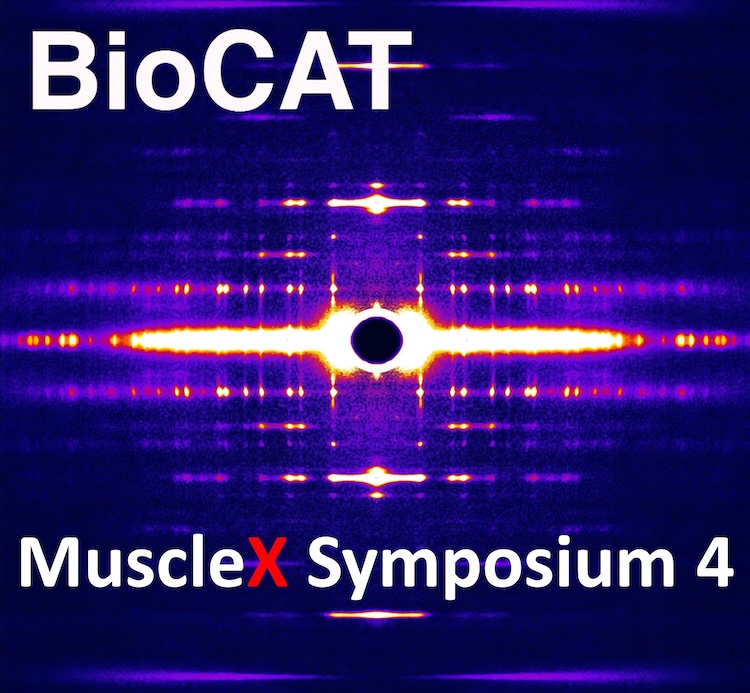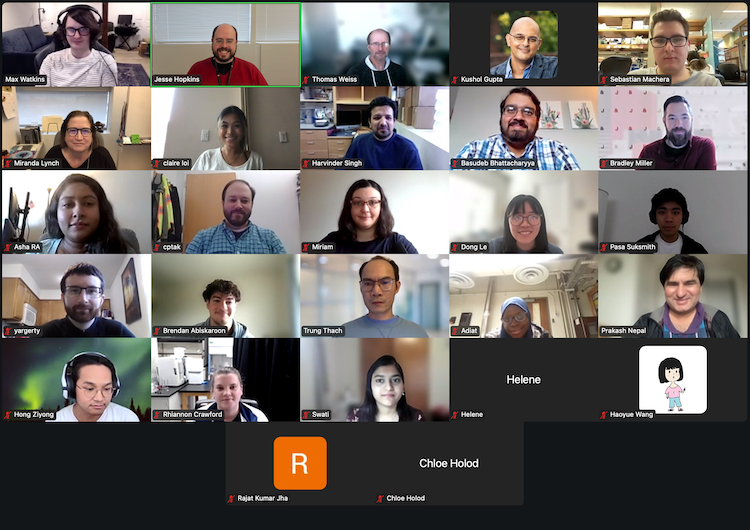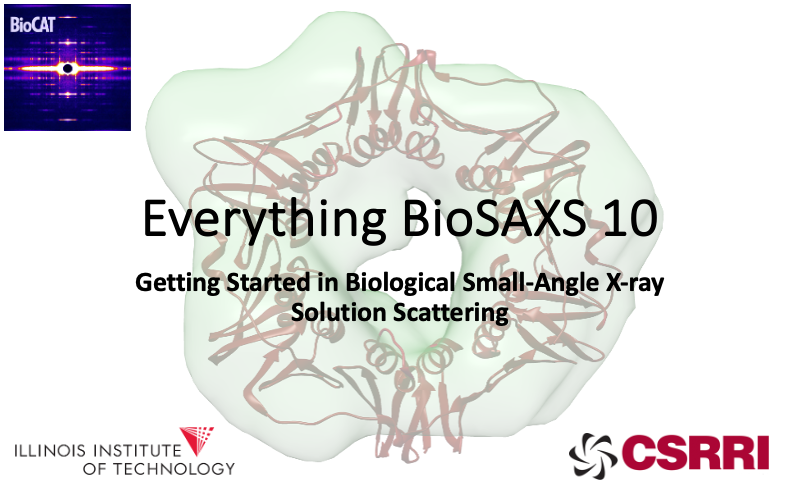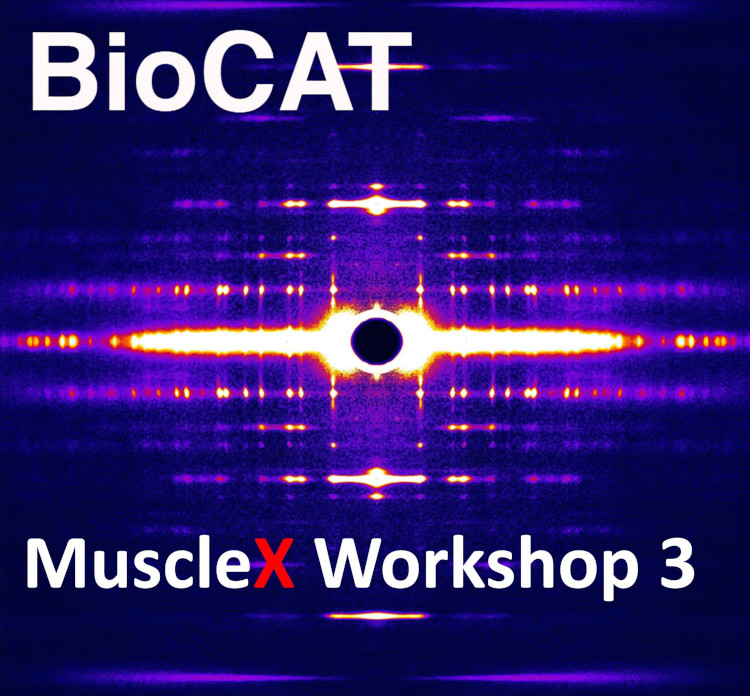BioCAT Town Hall Wrap-Up

Thanks to everyone who joined us for the BioCAT Town hall on January 10th!
We announced a lot of exciting new/upgraded capabilities. Some of that you can now find on our website, while others we’ll be updating shortly.
Perhaps the most important announcement is that BioCAT is resuming user operations this spring, with user beamtime available starting February 13th.
One announcement we don’t want to slip through the cracks is that Dr. Jesse Hopkins has taken over as BioCAT Director, while Dr. Tom Irving remains on as BioCAT PI.
For the beamline in general we announced:
- 8x reduction in main horizontal beam size and 16x reduction in microfocus horizontal beamsize with APS-U.
- A $2 million supplement from the NIH to upgrade our optics to take full advantage of the new APS-U source.
For solution SAXS, we announced:
- A new customized HPLC system for SEC-SAXS and SEC-MALS-SAXS capable of simultaneously running a sample and equilibrating a column, with flow paths switchable at the press of a button, control software incorporated into BioCAT’s BioCon software, and temperature control from 4-40 C.
- A new asymmetric flow field-flow fractionation (AF4) instrument coupled to MALS and …





